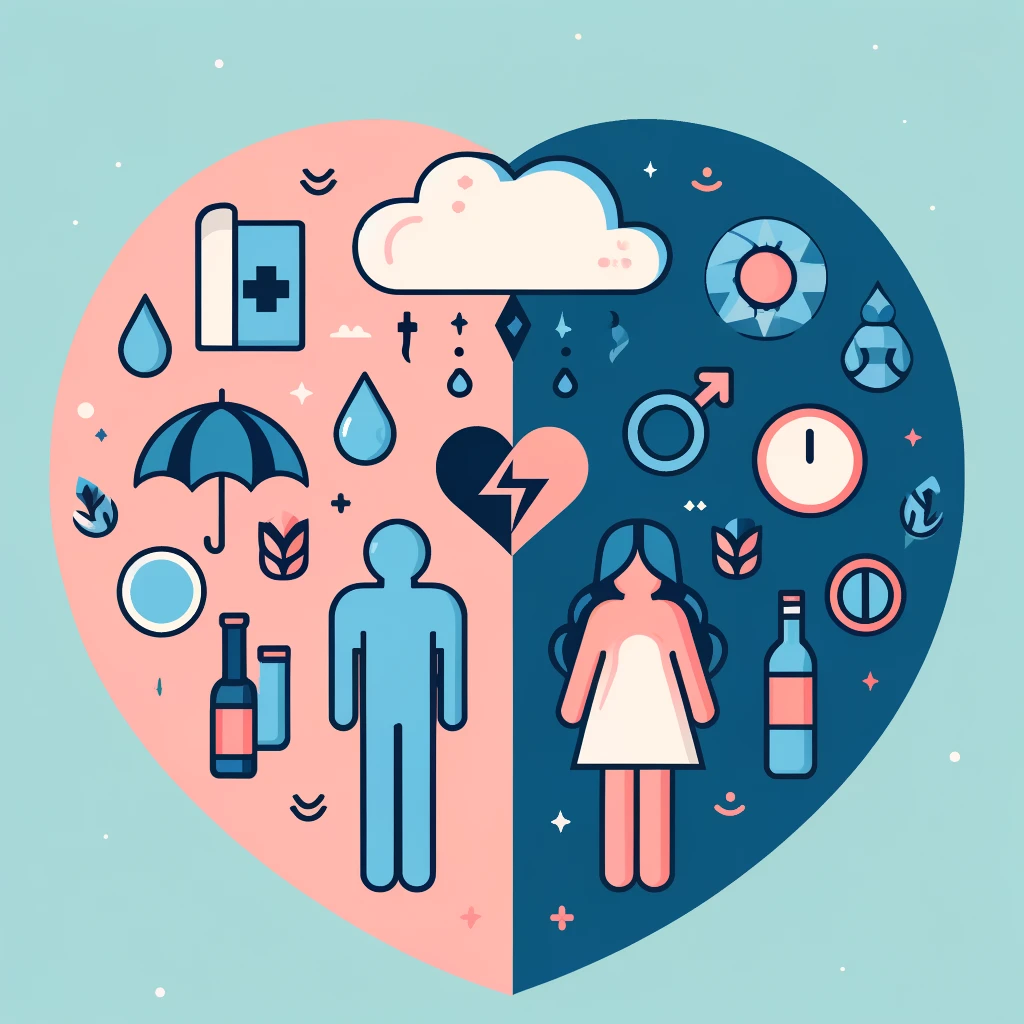
Exploring the Link Between Relationship Quality and Psychological Distress: A Gender Perspective
In today’s fast-paced world, striking a work-life balance and managing various social roles can often lead to psychological distress. This issue is particularly poignant for working women, who frequently engage in a “second shift” of domestic responsibilities after their formal workday ends. The quality of personal relationships plays a significant role in mental health, with various studies indicating that poor relationship quality can substantially increase psychological distress. However, the impact of relationship quality on psychological distress—and how it may differ between genders—remains a subject of extensive debate.
Gender Differences in Relationship Quality and Psychological Distress
Research has shown that the repercussions of relationship quality on mental health can vary significantly between men and women. While some studies suggest that women are more susceptible to psychological distress from poor relationship quality, others propose that the distress manifests differently across genders: women tend to show depressive symptoms, whereas men might exhibit behaviors such as increased alcohol consumption.
A comprehensive study explored these dynamics over a 25-year period, focusing on how changes in relationship quality correlate with shifts in psychological distress for both men and women. The findings revealed some intriguing patterns. Initially, women reported lower relationship quality and higher depressive symptoms compared to men, who reported higher levels of alcohol consumption.
Longitudinal Changes and Gender Specifics
Over the course of the study, both men and women showed changes in their relationship quality and corresponding psychological distress, but the patterns differed notably. Women displayed a less significant decrease in alcohol consumption over time compared to men. Interestingly, for women, both the increase in depressive symptoms and the decrease in alcohol consumption were closely linked to the changes in relationship quality. For men, however, no significant relationship was found between changes in their psychological distress and the quality of their relationships.
Implications for Mental Health Interventions
These findings underscore the necessity of gender-specific approaches in mental health interventions. For women, improving relationship quality could be a crucial component in reducing depressive symptoms and managing alcohol consumption. The study suggests that interventions aimed at enhancing communication and mutual support within relationships may be particularly beneficial for women.
Conversely, the results indicate that while relationship quality is not directly linked to changes in psychological distress for men, alternative factors—possibly related to stress management or coping mechanisms—may need more focus in male-oriented mental health strategies.
The Bidirectional Influence
The study also touched upon the bidirectional nature of relationship quality and psychological distress, noting that while changes in depressive symptoms were related to changes in relationship quality, the reverse was also true. This highlights the complex interplay between personal relationships and mental health, suggesting that improvements in one could potentially benefit the other.
Future Research Directions
The implications of these findings are vast, prompting a need for further research into the nuanced ways in which relationship dynamics affect psychological well-being. Future studies could explore additional variables that influence the relationship-quality-distress nexus, such as socioeconomic factors, personality traits, or even the impact of external stressors like job pressure or social obligations.
Our Conclusions about Relationships
Understanding the differential impacts of relationship quality on psychological distress across genders not only enriches our understanding of mental health dynamics but also highlights the importance of personalized mental health interventions. As we continue to explore these complex relationships, it becomes increasingly clear that tailored strategies that address the specific needs and circumstances of individuals are crucial for effective mental health care. This approach ensures that both men and women can achieve better mental health outcomes, contributing to overall well-being and a more balanced life.
Relationships and The Holistic Store
While we are thinking that through, boost your connection from the inside out with our wellness supplements and supplies. Check out our store for products that help you feel your best, making it easier to open up and connect on a deeper level.

